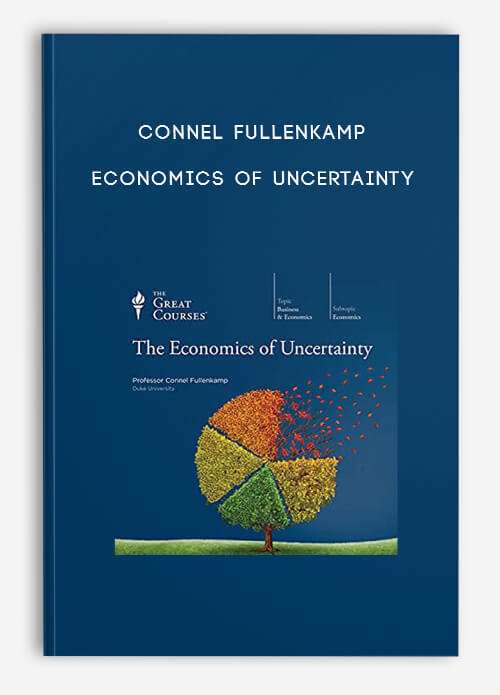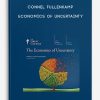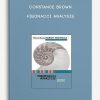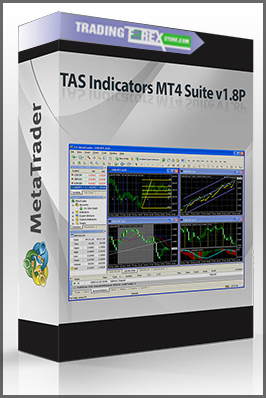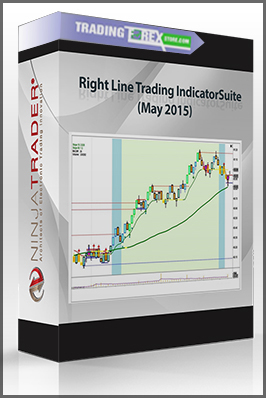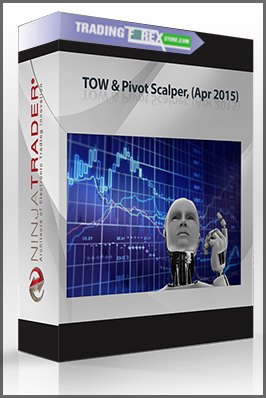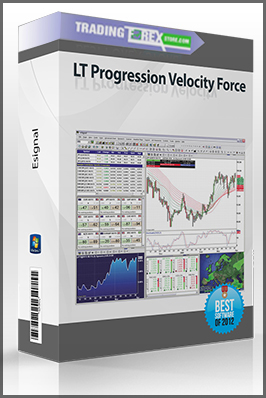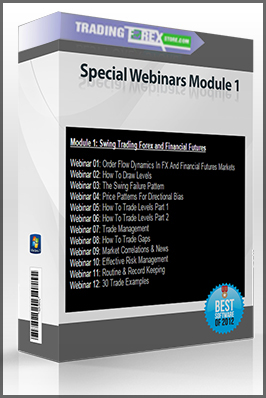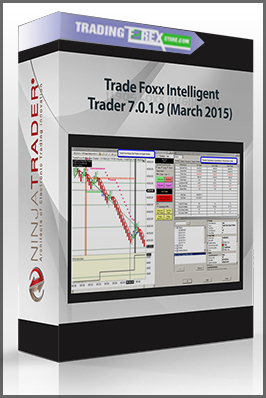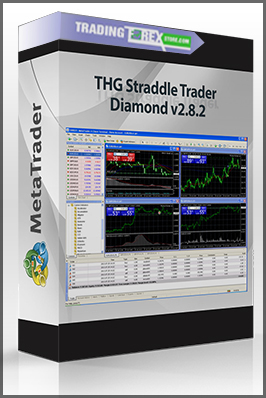Connel Fullenkamp – Economics of Uncertainty
$15.00
Product Include:
File size:
- Description
Description
Connel Fullenkamp – Economics of Uncertainty
**More information:
Get Connel Fullenkamp – Economics of Uncertainty at bestoftrader.com
Description
Economies are deeply complex systems. The global marketplace—even national, state and local economies—involve many economic actors behaving in rational and irrational ways, sustaining a dizzying array of interconnected activity. Because of the number of participants involved in this global exchange, the unpredictability of their actions, and the sheer variety of possible actions, some degree of economic uncertainty is inevitable.
In one of the most dramatic displays of economic uncertainty in our times, a wave of toxic loans almost brought down the American financial system in 2008-2009, and with it jobs and savings. Few experts forecast this catastrophe, which stands as a lesson in the power of economic forces to defy our predictions. This event may have been exceptional, but every day we are all at the mercy of economic uncertainty in matters such as these:
- Stock market: Although the stock market has a long-term upward trend, short-term volatility can wipe out a large fraction of an investor’s wealth in a single day.
- Careers: No job is safe from the constant assault of domestic competition, offshoring, innovation, downsizing, government regulation, and other factors.
- Insurance: The types of insurance products have skyrocketed to the point that you could easily spend all of your earnings to cover possible disasters.
- Retirement: Is your retirement secure if you live to be 100? What if you suffer a debilitating chronic disease? How will your nest egg fare if inflation soars?
Uncertainty also plagues us in smaller ways. For example, everyone is familiar with rising prices, but the Internet now makes it possible for online shoppers to be charged more based on their buying history, adding a new level of unpredictability to pricing. And anytime you hire someone for a service—from roofing to dentistry—you face the principal-agent problem, in which the person hired may take unethical advantage of your lack of expertise.
Indeed, these large and small risks are so pervasive that it is all too easy to conclude that nothing can be done. But economic uncertainty is like the weather: you can’t stop storms from happening, but understanding how and why they happen allows you to be prepared. In the same way, economic uncertainty is beyond our control, but we’re in a much better position to respond if we know what’s happening and why.
In 24 practical and empowering half-hour lectures, The Economics of Uncertainty takes the mystery and dread out of uncertainty, giving you the tools to deal with risk in every phase of your life. Your guide is Professor Connel Fullenkamp, an acclaimed economist and award-winning teacher at Duke University, where he is Professor of the Practice and Director of Undergraduate Studies in Duke’s nationally ranked Economics Department.
Deepen Your Knowledge of Economics
Gearing his presentation to novices as well as those with a background in micro- and macro-economics, Professor Fullenkampshows that the study of uncertainty sheds light on a wide range of phenomena, including:
- financial markets
- business cycles
- inflation and deflation
- free trade
- regulation
- strategic thinking
- career development
- family financial planning
The course also introduces fundamental ideas in probability, statistics, and game theory that give deep insight into the world of risk and require only high-school level mathematics. In addition, the critical thinking skills you acquire in The Economics of Uncertainty have broad applications beyond economics. For example, the decision tree approach to problem solving, presented in Lecture 7, can come to the rescue whenever you need to find the optimum path to any goal, whether it is selecting your next vacation destination or choosing the best college options for your child.
Enjoy the Expertise of a Personal Advisor
Governments and large financial institutions rely on teams of experts to steer them through the perilous waters of uncertainty. In The Economics of Uncertainty, Professor Fullenkamp serves as your personal advisor, explaining in detail how uncertainty works and providing valuable tips such as these:
- Think critically: Knowing the two types of probability—frequency-based and subjective—helps you judge the claims of people who appeal to probability to convince you to take a particular action.
- Weigh risk vs. benefit: When you have to choose between risky alternatives, start from the least risky choice and decide how much extra risk you can tolerate for a given amount of increased benefit.
- Mix it up: Since you can’t negotiate prices when shopping online, be unpredictable. Don’t always take the first price you’re offered. Put some items in your shopping cart and then log off without buying them.
- Cultivate your career: Companies thrive by having a comparative advantage over their competitors. Do the same in your job by identifying what you do better than most people. Then cultivate that strength.
Learn How to Survive and Thrive
The trick to surviving and thriving in an uncertain economy is to know the sources of risk and how much of a threat they pose. It also helps to have a guide as experienced, eloquent, and engaging as Professor Fullenkamp, who, in his consulting work, has designed and led training courses for bankers and government officials for the International Monetary Fund in Washington, D.C. With The Economics of Uncertainty, it is your turn to experience his fascinating seminars, covering topics such as these:
- Black swans: Popularized by best-selling author and risk analyst Nassim Taleb, a black swan is a rare, baffling event with great impact. Professor Fullenkamp analyzes the 2008 financial crisis in light of this intriguing theory.
- Asymmetric information: Often one party in a transaction has a monopoly on information—for example, in a used car sale. Discover how this problem affects every sector of the economy through adverse selection and moral hazard.
- Compensation: Getting a job done well is often a matter of how the payment is made and what performance incentives are offered. Evaluate the risks and rewards of several approaches to compensation contracts.
- Gambling: Even if you’ve never bought a lottery ticket or set foot in a casino, you gamble every day. Learn how to address economic decisions with a seasoned gambler’s knack for separating good bets from bad.
One of the most important lessons about uncertainty is that it’s built into the world. At times, the economy may seem like it’s careening out of control, but we are simply living through the fluctuating uncertainties that have always been with us. There’s no reason to despair, since uncertainty is a phenomenon that can be understood and managed. “Knowledge is power,” says an old proverb. After taking this invaluable course, you’ll have the essential background to manage your economic life toward a more secure future.
Stock trading course: Learn about Stock trading
A stock trader or equity trader or share trader is a person or company involved in trading equity securities.
Stock traders may be an agent, hedger, arbitrageur, speculator, stockbroker.
Such equity trading in large publicly traded companies may be through a stock exchange.
Stock shares in smaller public companies may be bought and sold in over-the-counter (OTC) markets.
Stock traders can trade on their own account, called proprietary trading, or through an agent authorized to buy and sell on the owner’s behalf.
Trading through an agent is usually through a stockbroker. Agents are paid a commission for performing the trade.
Major stock exchanges have market makers who help limit price variation (volatility) by buying and selling a particular company’s shares on their own behalf and also on behalf of other clients.

